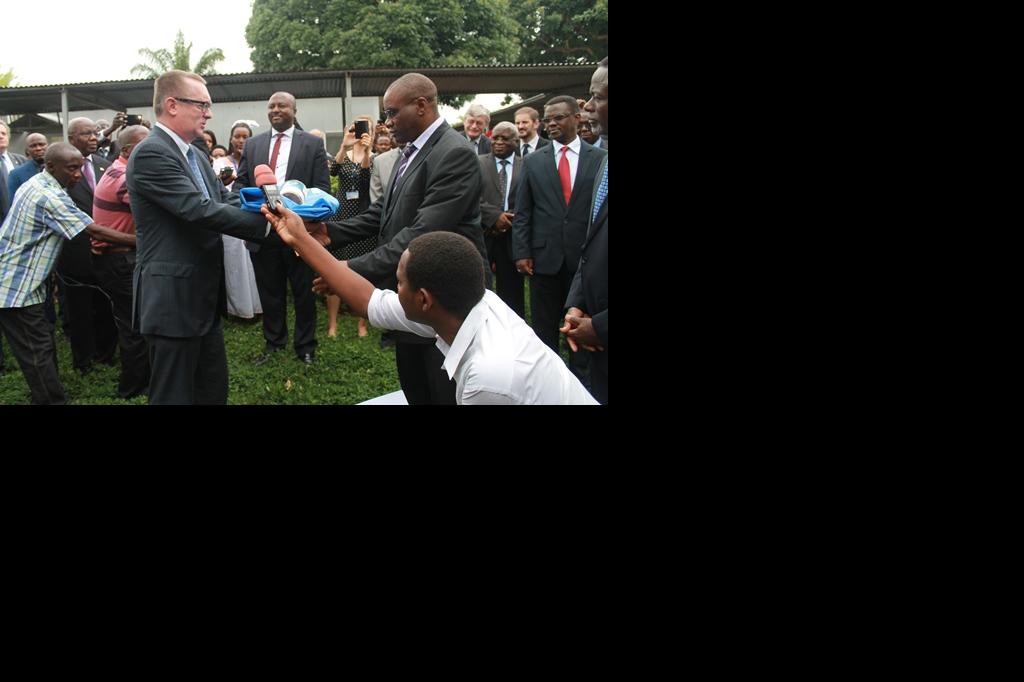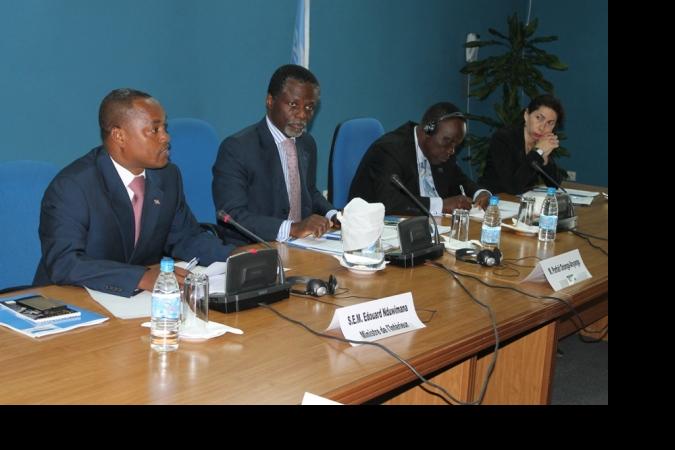5 November 2014 - Noting the current stability in Burundi's security situation, two United Nations officials briefing the Security Council today urged vigilance, but expressed confidence that the Government would continue on a path towards peace in the run-up to elections in 2015.
"This cannot be overemphasized: the Government should continue to do everything in its power to preserve peace and stability and to consolidate democracy," Parfait Onanga-Anyanga, Special Representative of the Secretary-General and Head of the UN Office in Burundi (BNUB) told the Council. "It [the Government] should avoid any posture that could lead to a reversal of the gains achieved so far. I have all confidence they will," he added.
Along those lines, Ambassador Paul Seger of Switzerland, Chair of the Burundi configuration of the UN Peacebuilding Commission (PBC), noted the "paramount importance" of elections next year.
"I am confident that Burundi will continue on its path towards peace consolidation and will cross the point of no return, leaving behind its conflictual past once and for all," he said.
"But until then, sustained vigilance is required, including by this Council, and I will try to continue to play my part in this endeavour as well," he added.
In his address, Mr. Onanga-Anyanga noted that from a monthly average of 10 between this January and July, the number of incidents associated with the youth of the ruling party documented by BNUB fell to 7 in August and 3 in September.
Regular calls by the President of the ruling party warning perpetrators of individual consequences seem to have been heeded, he said. These incidents include the banning or disruption of public meetings, or threats against and/or physical assaults on members of opposition parties.
However, he emphasized, no significant progress has been made in the fight against impunity, including the cases of extrajudicial killings that BNUB has documented since 2011.
Moreover, justice reform has been slow, especially regarding the "key issues" of the independence of the judiciary, said Mr. Onanga-Anyanga. However, he noted that the process to select the Commissioners for the Truth and Reconciliation Commission has been initiated.
In addition, he said that progress towards BNUB's end of activities have proceeded as per the Joint Transition Plan, which was presented to the Council in May. The office's activities will end on 12 December with the lowering of the UN flag from its headquarters, the envoy said.
Calling on the Council and Member States to ensure that sufficient resources are allocated for the new stand-alone office of the UN High Commissioner for Human Rights (OHCHR), which was approved by the Government in August, Mr. Onanga-Anyanga said that Burundi will continue to need strong support from all of its partners.
For his part, Mr. Seger noted in his briefing that tensions still persist in the country, internally between the ruling party and the opposition parties, as well as externally, between the Government and its main international partners.
Emphasizing the importance of inclusivity, he said that responsibility falls primarily with the Government.
"I therefore call on it to approach the elections with the confidence of a country that [is going] through this kind of democratic exercise for the third time since emerging from its bloody past, but with the vigilance of a country that is aware of the ongoing fragility of its peace consolidation process and the responsibility that comes with it," he stressed.
On the other hand, he urged the opposition parties to participate in the electoral process, and to not repeated mistakes committed in 2010.
"Their stated goal must be to become a part of the country's political governance in order to consolidate democratic process and work jointly with others towards Burundi's prosperous future," he said.
In that vein, the focus should be on a medium- and long-term vision, rather than on short-term political considerations, he said.
"Burundi is given a historical chance to show the international community that it has overcome its hurtful past and that it is embarking on a more prosperous future based on strong democratic institutions and focused on improving the living standards for its population, not least for the youth," he said. "We as international community have the responsibility to help Burundi achieve this vision."
Burundi was the first country, along with Sierra Leone, to be put on the agenda of the PBC when it was set up in 2006, to ensure that countries once ravaged by war do not relapse into bloodshed.
BNUB was set up, also in 2006, following a ceasefire between the Government and the last remaining rebel force to support peace consolidation, democratic governance, disarmament and reform of the security sector. In April, the Security Council agreed that BNUB would wrap up at the end of this year, and transition to a UN country team (UNCT).





